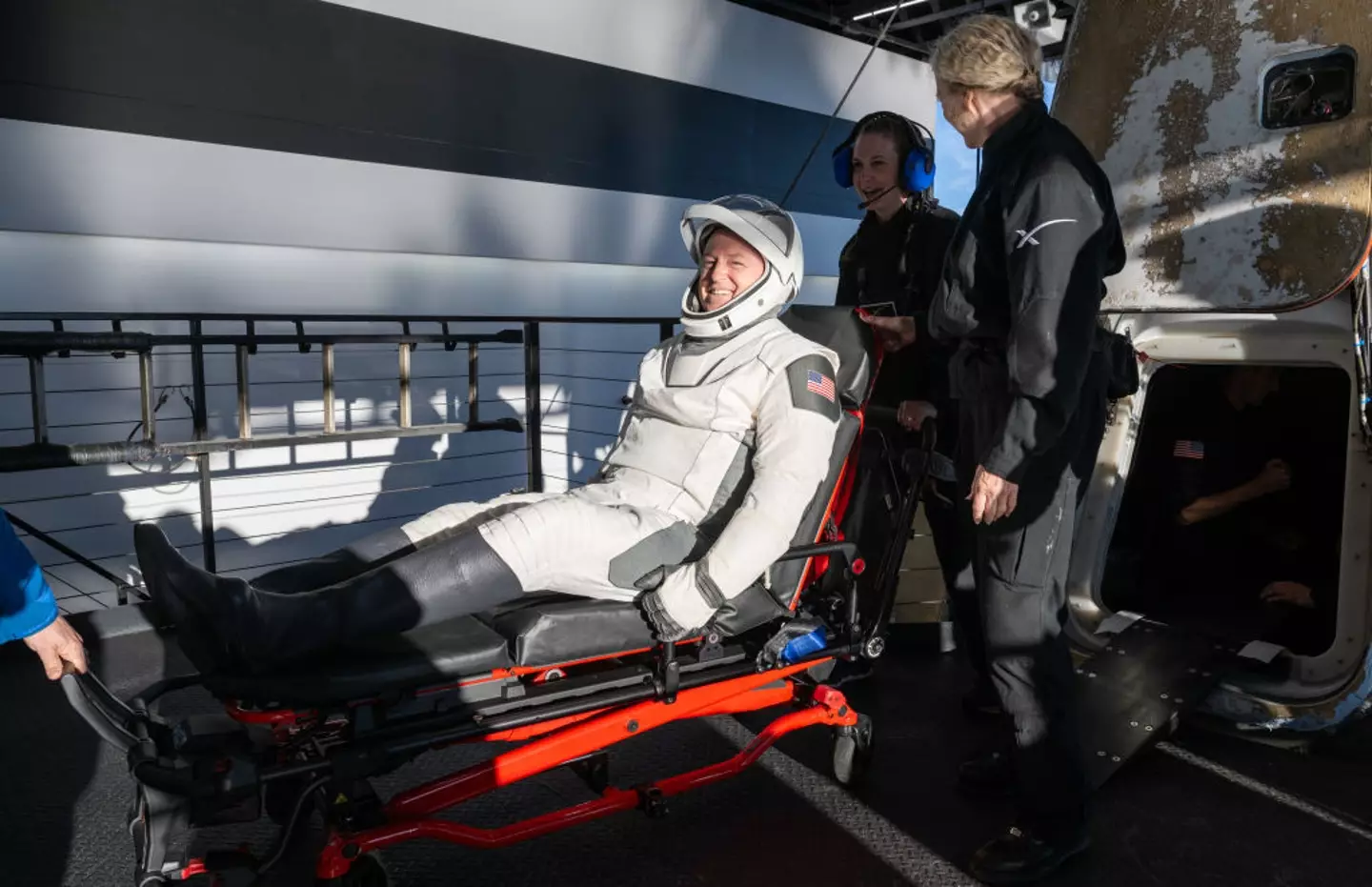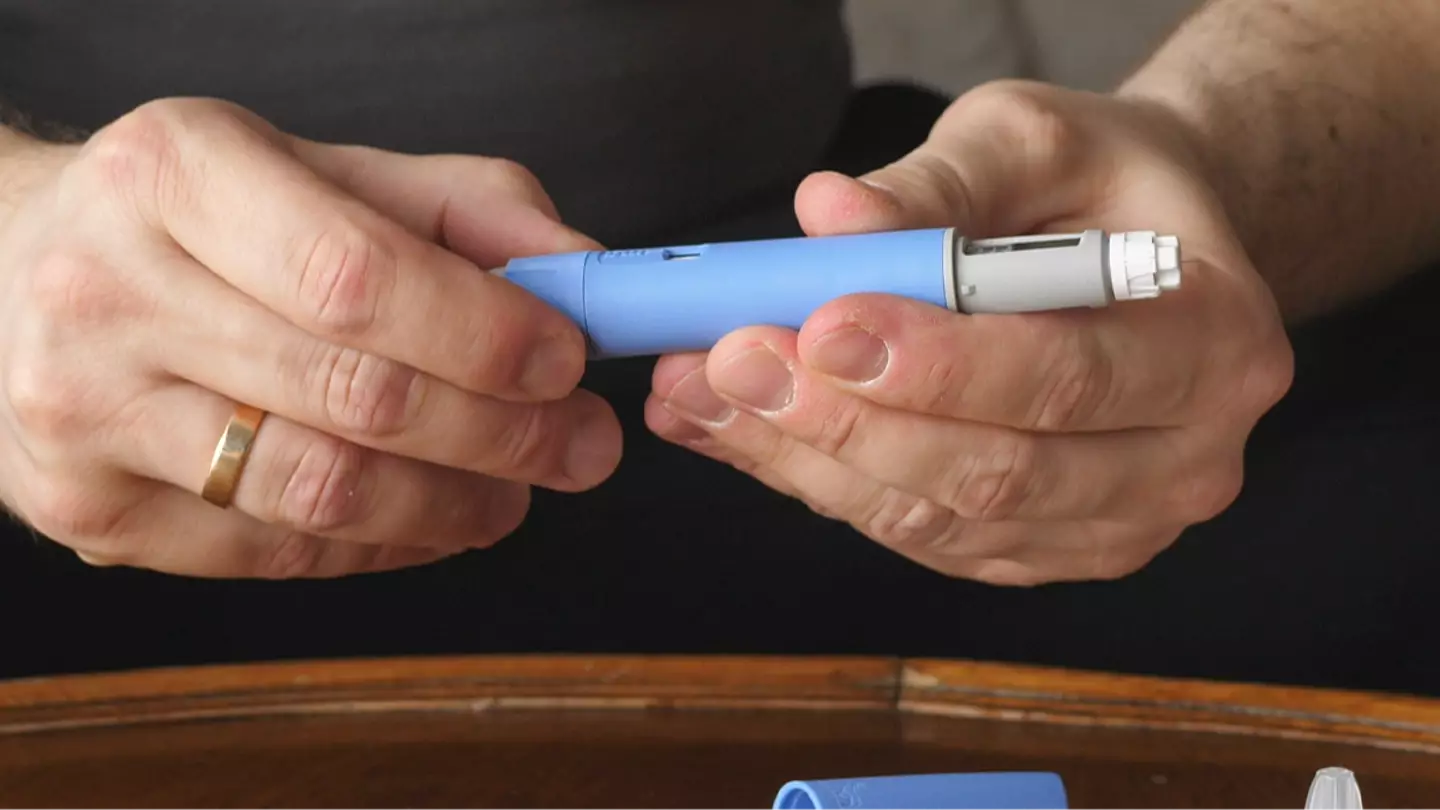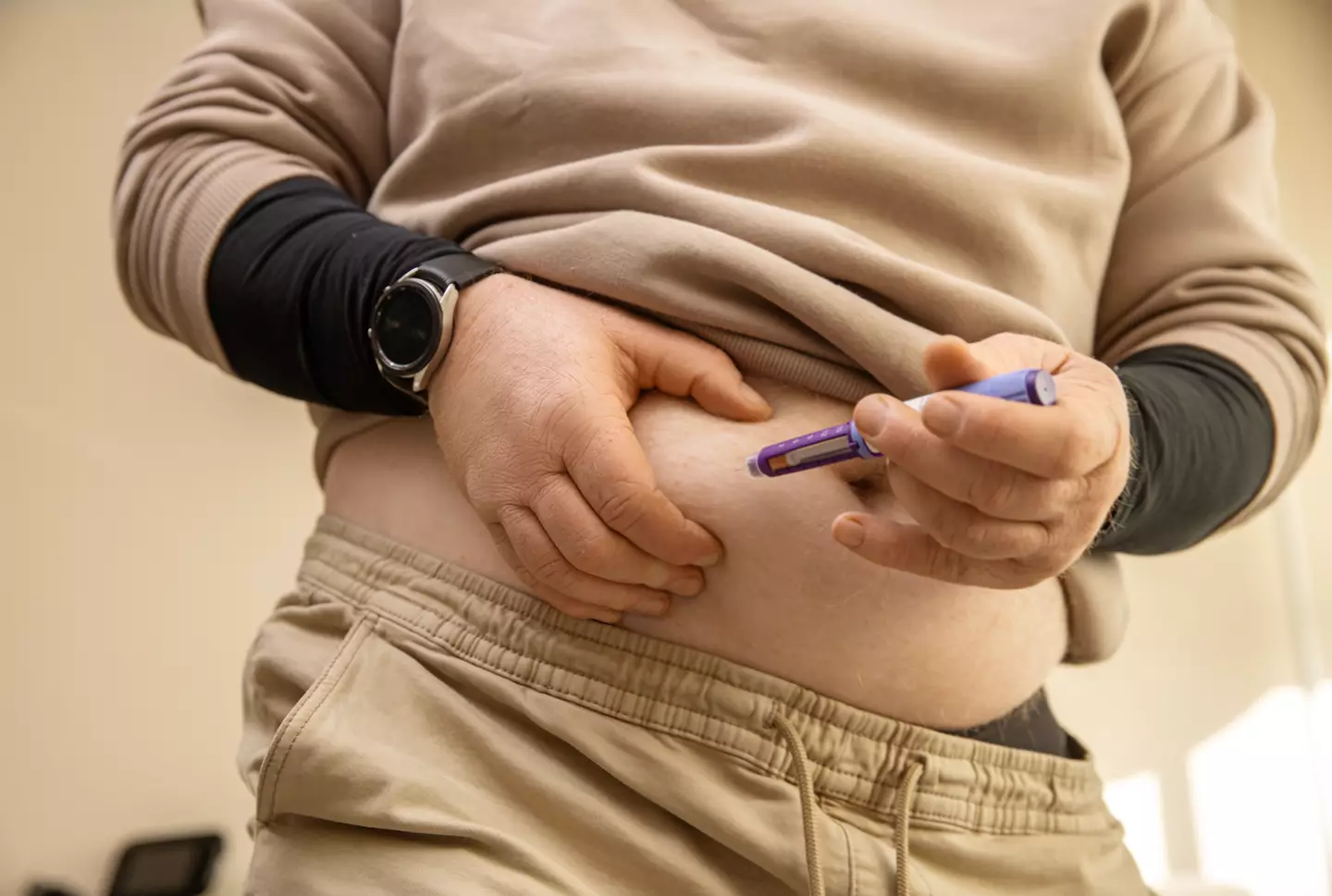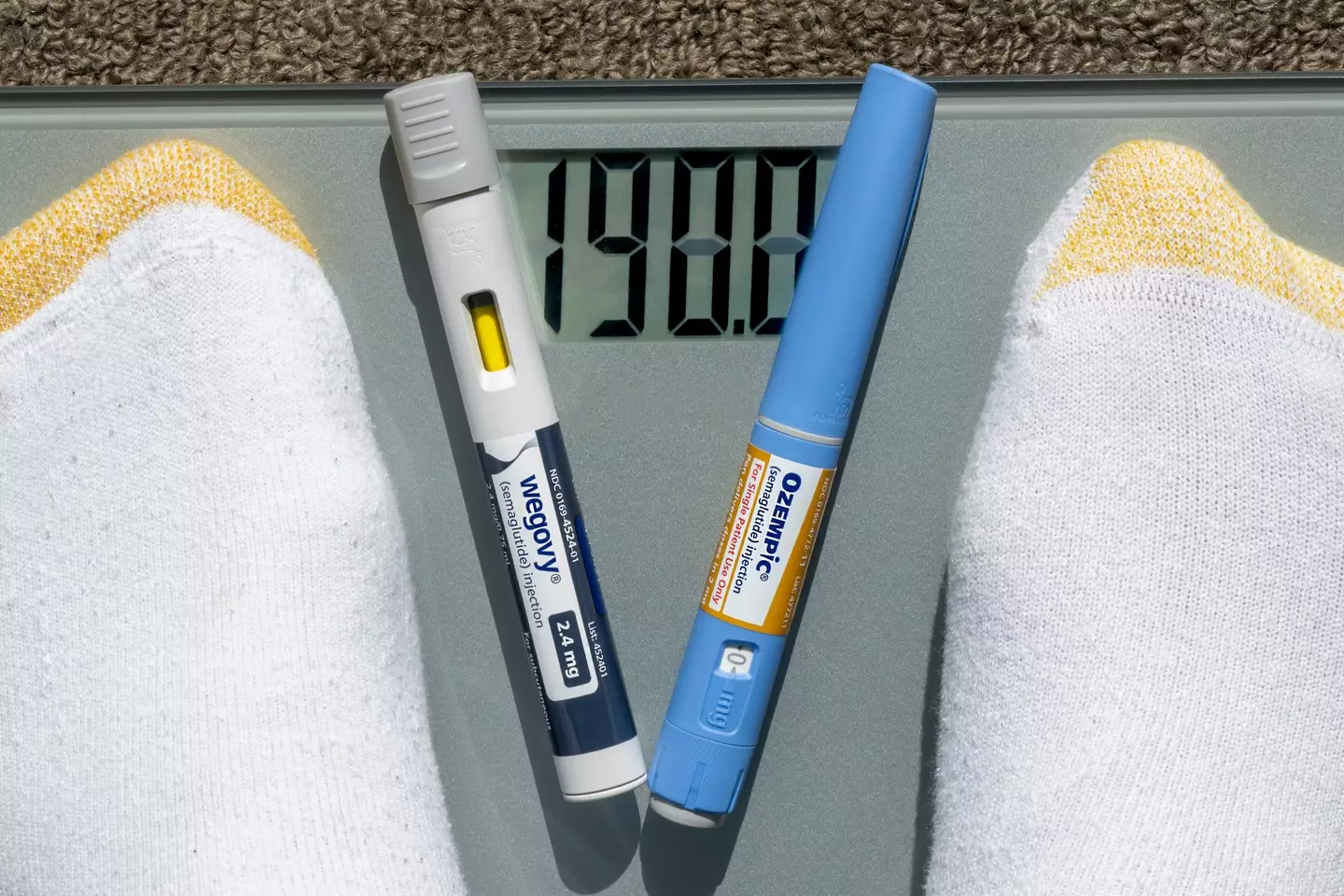A man who tried the ‘world’s most extreme diet’ for 100 hours has revealed the shocking impact it had on his body.
Will Tennyson has shot to YouTube fame with more than three million subscribers for the fitness fanatic’s hot takes on exercise, lifestyle and extreme challenges.
The bodybuilder and cookbook author is renowned for pushing his body to its physical limits and in May last month revealed he tested out the world’s ‘most extreme diet’ for more than four days.
“It’s time to torture every last ounce of fat off my body,” Will said as he kicked-off the challenge. “This is going to suck.”
“I have a feeling that I’m going to be so flat that I’m going to be two dimensional by the end of this.”


The YouTuber said he felt like a ‘string bean’ in the challenge (Will Tennyson/YouTube)
Will revealed he followed the ‘depletion’ diet with a goal to starve the body of glycogen so he can fill the muscles ‘even more’ at the end of the challenge.
He followed a strict diet comprised of 235g of protein, 54g of carbs and 81g of fat, which basically saw him chow down on a basic meal plan of broccoli (or other green veg), chicken and one table spoon of olive oil and one quarter teaspoon of salt, three times a day, plus a protein powder shake of two scoops.
“I think the last time I had 54g of carbs in a day was the day I stopped breastfeeding. That is practically keto,” Will remarked at the start of his journey.
He also had four rules: to walk 12,000 steps every day (outside of exercise), drink two gallons of water, and avoid artificial sweeteners or any additional seasonings beyond his salt and olive oil allowance.
Will started with a weigh in of 178.3lbs and throughout the course of the next few days, suffered some side effects from the extremely restrictive diet.
His coach said the depletion diet is ‘brutal’ for hunger, and Will himself showed that even by day one, his energy had taken a beating.
All while still regularly working out at the gym, he said: “Training during a depletion is like Olympic diving into a frozen laze. They just don’t go together.”
He also told his viewers how he tried to maintain positive, but commented things like: “This diet is like a freaking arranged marriage because the only passion that I have is the desire to cheat on it.
“I did not think that I would get sick of this on day one.”
After the first night, he said he went to bed ‘starving’ and wanting to ‘cry’.
“I feel really weird right now like my head is pounding,” he added.


The meals became a struggle (Will Tennyson/YouTube)
By the next day, he had already lost 3lbs and said it was even more of a struggle, commenting how he felt like a ‘string bean’.
It wasn’t just feeling tired or the hunger that bothered him, but the fact he felt ‘extremely weak’.
“My body feels like it’s shutting down,” Will added.
“On the bright side I’m no longer afraid of zombies, because I am one.”
Again by bedtime and after another day of chicken, veg, olive oil, a sprinkle of salt and protein powder, he said his head was hurting and he felt ‘extremely moody’.
“I had to close the blinds, the sun hurts my head. I can’t watch TV because the TV hurts my head,” he remarked. “If I stand up I’m going to fall over.”


Will before and after the extreme diet (Will Tennyson/YouTube)
By the time his challenge came to an end, Will’s physique presented a drastic change.
He revealed he weighed 173.8lbs – a big drop with a weight loss of 4.5lbs in just four days.
“I definitely see a huge difference especially in my quads. They sharpened up a lot, I do look a lot flatter,” he said.
However, needless to say he was glad the challenge was over and he could finally eat carbs (especially a sweet potato) adding that his muscles had become so achey he couldn’t ‘connect’ with them at all.
Ouch!
Featured Image Credit: YouTube/Will Tennyson
Topics: Fitness, Food and Drink, Health, YouTube, Community, Mental Health


A simulation has shown how your body gets to work when you go 36 hours without eating, and the results are surprising.
When it comes to eating healthy and having a balanced lifestyle, people have a whole lot of opinions. And one of those common opinions is of the benefits of intermittent fasting, which is an eating plan that switches between fasting and eating on a regular schedule, per Johns Hopkins Medicine.
But what actually happens to your body during that period?
Well, a YouTube video has shown how the body tends to respond to no longer getting any sustenance.
The 55 second video, posted on the platform by the Wellness Wise channel on May 6, has many users praising the effectiveness of fasting and the benefits they have seen from doing it.


Fasting can have a surprising impact on your body in just a few hours (Getty Stock Image)
According to the video, after four hours your body stops digesting food, insulin drops and it starts burning stored sugar for energy.
After eight hours a person’s blood sugar levels begin to drop and the body begins using stored glycogen for energy.
It is at about 12 hours that fat burning begins to take place and the body starts to shift into ketosis. This pretty much just means the body is burning fat for energy instead of glucose.
This can result in weight loss, so now you understand the basic appeal of the method for losing weight.
At around 16 hours the body starts breaking down damaged cells and toxins for recycling, this phase is known as autophagy.
At 24 hours the body is fully in ‘fat burning mode’, according to the video and at this point the body can reduce inflamation and increase insulin sensitivity.
At 30 hours growth hormones inside the body begin to spike and this is believed to help preserve muscle and promote fat loss.
And finally at 36 hours the body is at maximum autophagy where your body regenerates tissues and boosts your metabolism.
Amazingly, this ‘body reset’ can be extended to 72 hours, however it will prove more difficult.
Johns Hopkins medicine has outlined some of the benefits of intermittent fasting while there remains some debate as to whether fasting is good for the body.
They noted that some of the benefits research has concluded can be gained included:
- Improved thinking and memory
- improved heart health,
- improved physical performance,
- helped prevent obesity
- improved tissue health


There remains a debate between scientists on the benefits of intermittent fasting (Getty Stock Image)
Despite these potential benefits, there are also common negative side effects that can occur when it comes to fasting.
While severity may vary, the side effects can include:
- Excessive hunger pangs
- Fatigue and low energy
- Headaches (ranging from mild to severe)
- Dizziness
- Digestive issues (e.g., constipation and bloating)
- Irritability and other mood changes
- Bad breath
- Sleep disturbances
- Dehydration
- Polyuria (excessive urination)
- Potential impacts on reproductive health
- Nutrient deficiencies and malnutrition
So before you give long intermittent fasting a go, probably best to speak to your healthcare professional for advice.
Featured Image Credit: YouTube/Wellness Wise
Topics: Health, News, Food and Drink


A social media user has spoken about their journey trialing one meal a day and highlighted the benefits they found from doing so.
With many people focused on their health and weight, it can be a little bit difficult to know what diet is best for you.
And while there are many options available, some simply don’t seem to work for one reason or another.
Discussing one of the most popular – the one meal a day diet – a Reddit user revealed their strict diet plan and explained how well it worked for them.
Although it is easy to understand why most wouldn’t want to give it a go given the fact its well below the healthy amount of food you should be eating in a day.
The person outlined the rules, stating that he went from intermittent fasting for six months to one meal a day, and of that one meal, they don’t have sugar, rice, bread, carbs, or junk food (what else is there?!).


Losing weight can prove to be difficult for many (Getty Stock Image)
They added that it was similar to a keto diet in that all of their carbs come from natural vegetables and fruits.
They explained: “I do coffee in the AM and some tea in the afternoon. I feel super hungry by about 6 but found that I really don’t eat much when I sit down. A few bites can hold me over until the next day.
“I did also did try a psuedo 48 hour run. ( had about 100 calories over 2 days). Not as hard as you think. I could probably make it 3. Eventually I want to get to a 48 hour fast a week, or even two. I found for me, getting started on the weekend was easiest.”
100 calories over two days is significantly below the healthy and recommended calorie intake for both men and women.
According to the Cleveland clinic, there can be slight fluctuation in how many calories should be consumed due to activity level and age, but it is genuinely recommended that a person under the age of 50 should consume 1,800 to 2,400 calories a day.
The Reddit user insisted that doing this allowed them to lose weight significantly and said it helped keep the process simple and focused.


The user insisted the one meal a day method helped them shed lots of weight (Getty Stock Image)
A simulation showcasing how the body behaves without food has shown that without intake (food) the body can quickly start to shed weight and burn through fat for energy.
They added: “For me it is for weight loss. Regardless of what anyone tells you,. Everything is about reducing calories. You don’t need an app, special diet plan, etc I am down 35 lbs. Still have 80 to go but it no longer seems impossible. Basically, you just need to reprogram your brain to not use food as reward, pleasure, etc. It is simply a fuel to keep going.”
But before you go and give any old diet a go, it is probably best to speak to a healthcare professional and let them know your goals and intentions.
OMAD is a pretty intense commitment, yet there’s no strong scientific consensus that eating one meal a day leads to better long-term weight control compared to more balanced approaches.
Featured Image Credit: Getty Images/Westend61
Topics: Food and Drink, Health, News, Reddit


Some 72 days have passed since NASA astronauts Butch Wilmore and Suni Williams were rescued from a space mission gone wrong.
Last June, the pair docked at the International Space Station for what was supposed to be an eight-day mission.
They made history as the first astronauts to ride Boeing’s Starliner capsule to the ISS – but it was, ironically, that very pod’s technical troubles that turned their short trip into a nine-month stay, as NASA scrambled to get them home.
Of course, it was Elon Musk who came to the rescue eventually, offering up a SpaceX Dragon spacecraft to safely bring the duo back home on March 18.
Spending such a long time in microgravity takes a serious toll on the human body.
While before and after photos of the astronauts sparked concern, both Wilmore and Williams have been recovering well following their unexpectedly long work trip in orbit.
Now, the duo have given an update on their health and post-ISS recovery, 10 weeks since they touched down.


Suni Williams and Butch Wilmore were stuck on the ISS for nine months (YouTube/NASA)
Speaking to Reuters on Wednesday (May 28), Wilmore said: “Right now, we’re just coming off of the rehab portion of our return.
“Gravity stinks for a period, and that period varies for different people, but eventually you get over those neurovestibular balance type of issues.”
Before embarking on the mission, the 62-year-old experienced back and head issues – meaning he was unable to turn his head all the way to the side.
Yet those issues disappeared in space, without the stress of gravity weighing his body down.
But as soon as he landed back on Earth, Wilmore felt his neck pain return immediately.


Butch Wilmore noticed his neck pain returning as soon as he touched down on Earth (Keegan Barber/NASA via Getty Images)
“We’re still floating in the capsule in the ocean, and my neck starts hurting, while we still hadn’t even been extracted yet,” he laughed.
Williams shared her own struggles adapting to a gravitational environment, with her side effects proving slower to clear up.
Despite logging two hours of gruelling exercise a day aboard the space station to preserve muscle and bone mass, the adjustment back to Earth was far from seamless.
Williams revealed she felt unusually tired during the later stages of recovery, as her muscles gradually re-engaged with the effects of gravity.
For a while, she struggled to wake up as early as she wanted.
“Then I’m up at four in the morning, and I’m like, Aha! I’m back,” she said.


The astronauts’ work with NASA and Boeing continues (Miguel J. Rodriguez Carrillo/AFP)
The duo may be safely on the ground, but their mission is far from over.
Wilmore and Williams continue to work with Boeing’s Starliner program and NASA’s space station unit in Houston as well as agency researchers.
All that, alongside spending at least two hours a day with strength and reconditioning officials within NASA’s medical unit.
Williams summed up the pair’s life post-ISS: “It’s been a little bit of a whirlwind.”
Featured Image Credit: MIGUEL J. RODRIGUEZ CARRILLO/AFP via Getty Images


An Irish man explained his struggles with an Ozempic- like drug and the issues he encountered after taking it for years.
While weight loss drugs aren’t anything new, they have shot to mass popularity in recent years as many celebrities announced their own journey on Ozempic or similar drugs.
This is despite the fact that Ozempic is intended to be used as a prescription medication for those suffering with Type 2 diabetes.
76-year-old John Kane from Killiney, Dublin, remarked at his own experience with a drug similar to Ozempic and highlighted the impact it had on his body when he attempted to come off of it.
Kane explained the reason he decided to start taking a weight loss drug in the first place was tied to him starting to have mobility issues similar to that of his mom.
Speaking to Irish Independent, he said: “I remember sitting on the couch and I dropped something and I went ‘yeah I’ll leave that’.
He added this moment reminded him of his mother who wasn’t moving much in her final years.
As part of the Strive clinical trial at St Vincent’s Hospital, Kane started taking liraglutide, a medication not unlike semaglutide that is commonly known as Ozempic or Wegovy.


Liraglutide works by deceasing a persono’s appetite (Getty Stock Image)
What is Liraglutide?
According to the Cleveland Clinic, it is a drug that decreases a person’s appetite.
If a healthcare provider recommended this drug they are also likely to suggest changes to diet and exercise as well.
This medication is for injections under the skin of your upper leg, stomach area, or upper arm and can come with a whole host of side effects.
What are the side effects of Liraglutide?
Some of the most severe side effects include:
- Allergic reactions or angioedema—skin rash, itching, hives, swelling of the face, eyes, lips, tongue, arms, or legs, trouble swallowing or breathing
- Gallbladder problems—severe stomach pain, nausea, vomiting, fever
- Pancreatitis—severe stomach pain that spreads to your back or gets worse after eating or when touched, fever, nausea, vomiting
- Thoughts of suicide or self-harm, worsening mood, feelings of depression


Kane said he struggled to keep the weight off (Michael Siluk/UCG/Universal Images Group via Getty Images)
What happened when John stopped taking Liraglutide?
While there are many side effects that could have impacted John, what he experienced was an inability to keep the weight off when he stopped taking it.
He said: “I had really put a lot of effort into the last two years, and was determined not to put back on the weight. But whether I liked it or not, even watching my food, the weight just started to creep back up. Half the weight I’d lost, I put back on over six months.
“If you come off this and you’re putting up the weight, mentally you hit the rocks. It was really affecting me. I’m not one to be depressed, but it really bit into me. At the end of the six months, my wife said, ‘Jesus, go back on it’. So financially, we were like, ‘let’s just bite the bullet’.”
Why did John start taking Ozempic?
In hopes of staving off the weight, Kane opted for a switch.
He explained: “If you’re on this and it’s working, and you give up, the shit’s going to hit the fan. No one has the will to overcome the genetic stuff [condition of obesity]. They then brought out semaglutide, which was about €140 and more manageable [financially].”
If you are considering getting on any weight-loss drug, it is worth speaking to your health care professional first.




